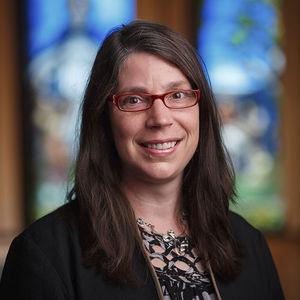Confronting Poverty: Bringing Service to Justice Summer Scholars Session I
Mahatma Ghandi says that poverty is the worst form of violence. Jesus says that the poor will always be with us and that they will inherit the kingdom of God. Ronald Reagan says we fought the war on poverty and poverty won. So many religious and political leaders have commented on poverty. What does all this mean? And what should you do about it?
In this course, we will address that enduring question: Why are people poor? We will take an interdisciplinary look at poverty to try to understand the forces that maintain poverty and the forces that resist it. From sustainability to social entrepreneurship, from economics to creative writing, we will explore a variety of mindsets and methods for understanding, representing, and assessing poverty.
But we will do more than theorize about poverty. We will also engage the local community to understand how poverty persists and is resisted in and around South Bend. We will meet with community leaders who do anti-poverty work and we will serve local residents who live in poverty. We will explore poverty through statistics and stories—the facts and the lived experience of people in poverty.
This framework will help guide our journey:
Definitions: What is poverty?
Causes: Why are people poor?
Consequences: Who is poor?
Privilege: Who isn’t poor?
Rhetoric: How does the media represent poverty?
Solutions: What should we do about poverty?
Through academic and experiential learning, we will gain a deeper understanding of the public and private programs and institutions that address poverty on the local, national, and global level. We will also gain a deeper understanding of what has worked and what hasn’t in domestic and international efforts to create lasting change to reduce poverty.
Finally, you will be encouraged to discern how you are called to address poverty in your personal and professional life, exploring individual actions and careers that align with your skills and interests related to poverty, whether that is through the study of medicine, law, politics, social work, business, theology, psychology, economics, English, engineering, or any other field. By the end of this course, you should have a sense of the history of poverty and of how poverty could become history.
Course Schedule
This course will be offered during Summer Scholars.
Academic Director
Connie Snyder Mick, Ph.D.

Director, Academic Affairs; Director, Poverty Studies Interdisciplinary Minor Connie Snyder Mick is a senior associate director and the director of academic affairs at the Center for Social Concerns and co-director of the Poverty Studies Interdisciplinary Minor. Professor Mick works with faculty to design and implement academic community engagement in courses and research across the University, informed by pedagogical research on engaged teaching and learning. She leads initiatives that help advance a culture of engagement, such as the Community Impact Grants, the Engaged Learning Forum, and the Faculty Fellows. Professor Mick leads the Community Engagement Faculty Institute, a three-day immersion into the theory and practice of community-based teaching, research, and scholarship. Professor Mick teaches Rhetorics of Gender and Poverty as well as the Capstone for Poverty Studies. Her teaching experience includes a variety of Social Concerns Seminars (e.g. Digital Education in Northern Ireland), Introduction to Poverty Studies, Community Writing and Rhetoric, Multimedia Composition, Writing Center Theory and Practice, Graduate Practicum: Teaching Writing, Foresight in Business and Society (CBR), Management Communication, as well as the Ethical Leadership Through Service and Civic Engagement courses for Notre Dame's Hesburgh-Yusko Scholars Program and for a State Department funded English for Academic Purposes international service-learning course.
Professor Mick is editor of the Journal of Poverty and Public Policy. She has been a governing board member of the Shepherd Higher Education Consortium on Poverty and a faculty representative on the Indiana Campus Compact Advisory Board. She is an affiliated faculty member in Gender Studies. Professor Mick’s research interests include assessment of community engagement to measure impact on student learning and community development, the function of community engagement and service-learning in socio-cultural acquisition among English language learners, the role of writing in social change, the rhetoric of poverty, and the pedagogies of community engagement. Prior to this work, she directed the University Writing Center at Notre Dame. Publications include Poverty/Privilege: A Reader for Writers, Oxford University Press (2015) and a full argument rhetoric Good Writing: An Argument Rhetoric, Oxford University Press (2018). Recent work appears the Michigan Journal of Community Service Learning; Pedagogy: Critical Approaches to Teaching Literature, Language, Composition, and Culture; Service-Learning: Enhancing Inclusive Education; TESOL Journal; Foundational Practices in Online Writing Instruction; and a chapter in Service-Learning to Advance Access and Success.